A new study finds that AI-generated music stirs stronger emotional and physical responses than music composed by humans.


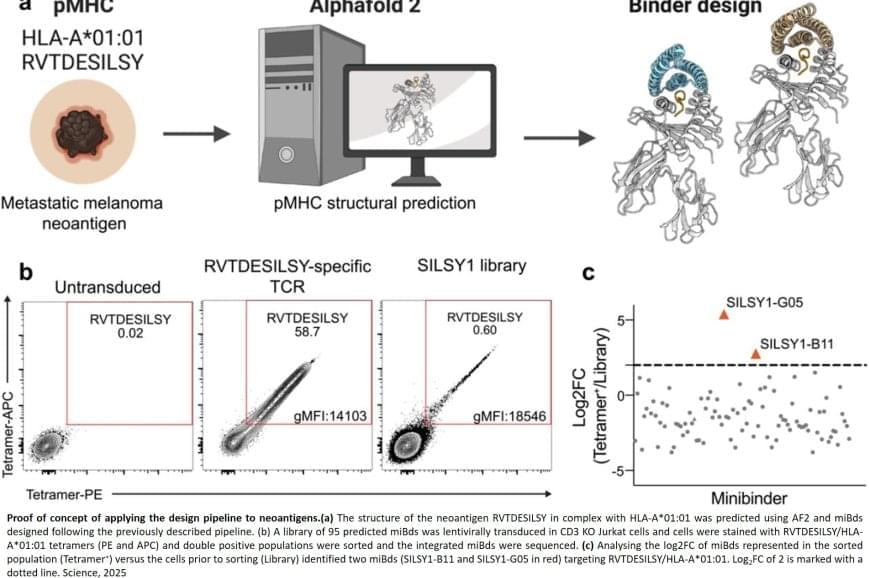
Normally, T cells naturally identify cancer cells by recognizing specific protein fragments, known as peptides, presented on the cell surface by molecules called pMHCs. It is a slow and challenging process to utilize this knowledge for therapy, often because the variation in the body’s own T-cell receptors makes it challenging to create a personalized treatment.
In the study, the researchers tested the strength of the AI platform on a well-known cancer target, NY-ESO-1, which is found in a wide range of cancers. The team succeeded in designing a minibinder that bound tightly to the NY-ESO-1 pMHC molecules. When the designed protein was inserted into T cells, it created a unique new cell product named ‘IMPAC-T’ cells by the researchers, which effectively guided the T cells to kill cancer cells in laboratory experiments.
“It was incredibly exciting to take these minibinders, which were created entirely on a computer, and see them work so effectively in the laboratory,” says a co-author of the study.
The researchers also applied the pipeline to design binders for a cancer target identified in a metastatic melanoma patient, successfully generating binders for this target as well. This documented that the method also can be used for tailored immunotherapy against novel cancer targets.
A crucial step in the researchers’ innovation was the development of a ‘virtual safety check’. The team used AI to screen their designed minibinders and assess them in relation to pMHC molecules found on healthy cells. This method enabled them to filter out minibinders that could cause dangerous side effects before any experiments were carried out.
Precision cancer treatment on a larger scale is moving closer after researchers have developed an AI platform that can tailor protein components and arm the patient’s immune cells to fight cancer. The new method, published in the scientific journal Science, demonstrates for the first time, that it is possible to design proteins in the computer for redirecting immune cells to target cancer cells through pMHC molecules.
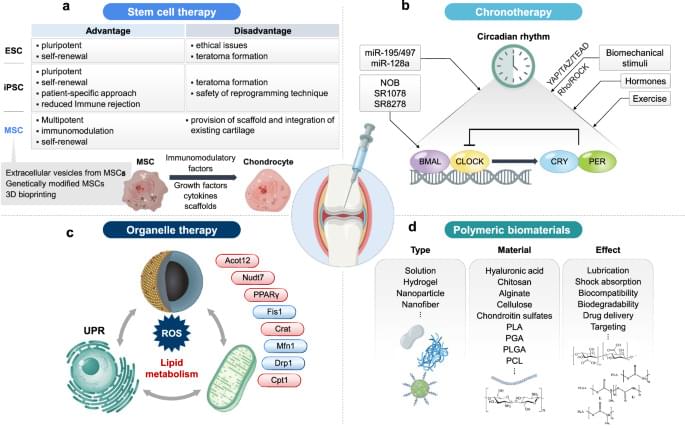
Osteoarthritis (OA) is a common joint disease that causes pain and stiffness, especially in older adults. Researchers are exploring new therapies to address this issue, here focusing on regenerative medicine, which uses stem cells to repair damaged cartilage. This involves injecting stem cells into joints to promote healing. However, challenges such as cell survival and long-term effectiveness remain. This study also examines gene therapy, which targets specific genes to reduce inflammation and cartilage breakdown. Biomaterials such as hydrogels and nanoparticles are used to deliver these therapies directly to the joint, improving treatment precision. In addition, this research highlights the role of circadian rhythms in OA, suggesting that timing treatments could enhance their effectiveness. These advancements aim to provide more personalized and effective OA treatments. Future research will focus on refining these approaches for better patient outcomes.
This summary was initially drafted using artificial intelligence, then revised and fact-checked by the author.
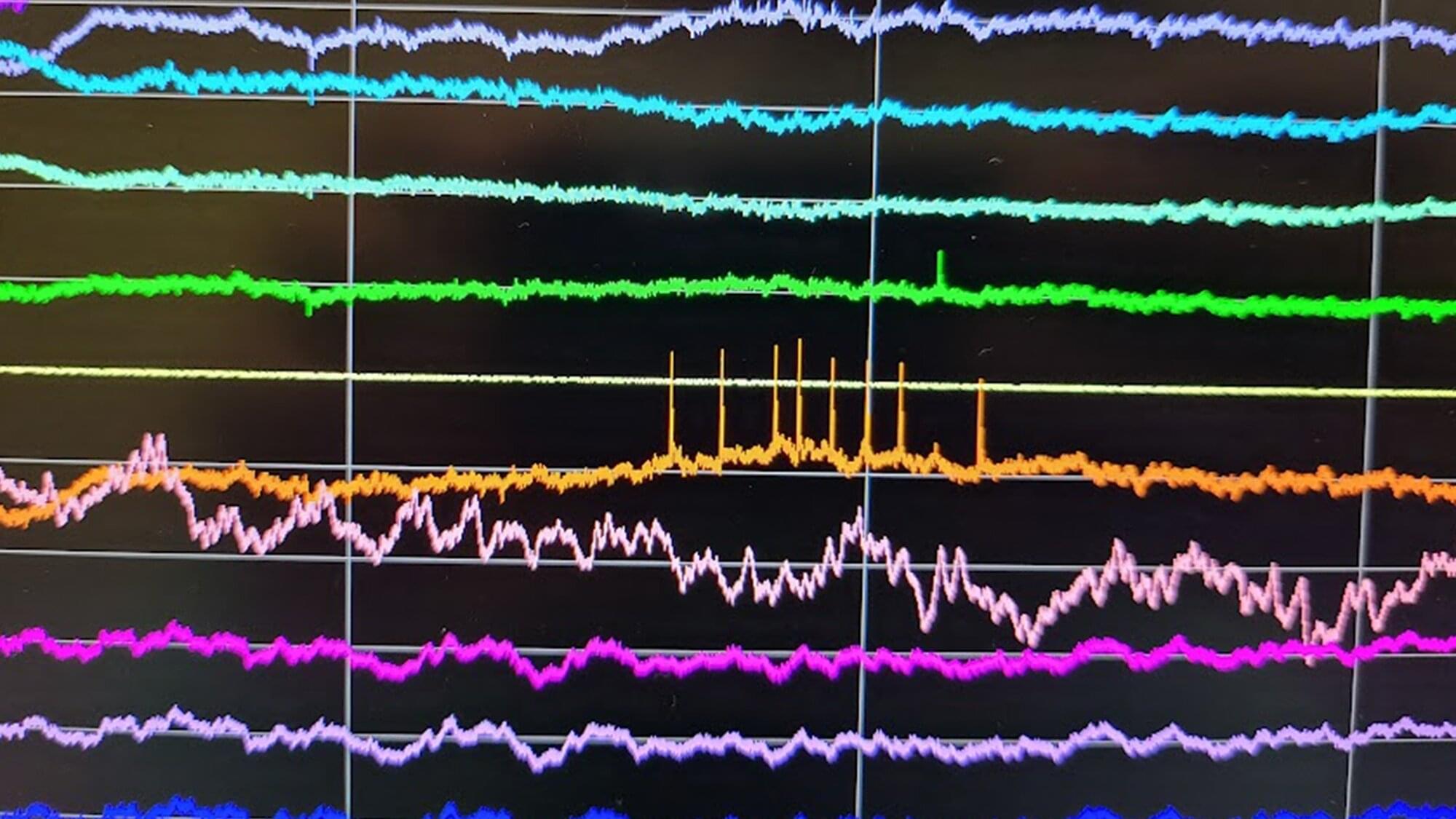
Understanding how the human brain stores information and later uses it to complete various tasks has been a long-standing goal of neuroscience and psychology research. Past studies have identified different types of memory processes that have distinct roles and characteristics.
One of these, known as working memory, entails the storage and manipulation of important information for short periods of time, particularly information that is helpful for completing reasoning tasks or to make decisions in the short-term. Findings suggest that this temporary storage of information is associated with the continued and persistent firing of specific neurons in the brain.
Most past studies focusing on working memory processes relied on experimental tasks that require participants to prioritize and memorize all items they are presented with.
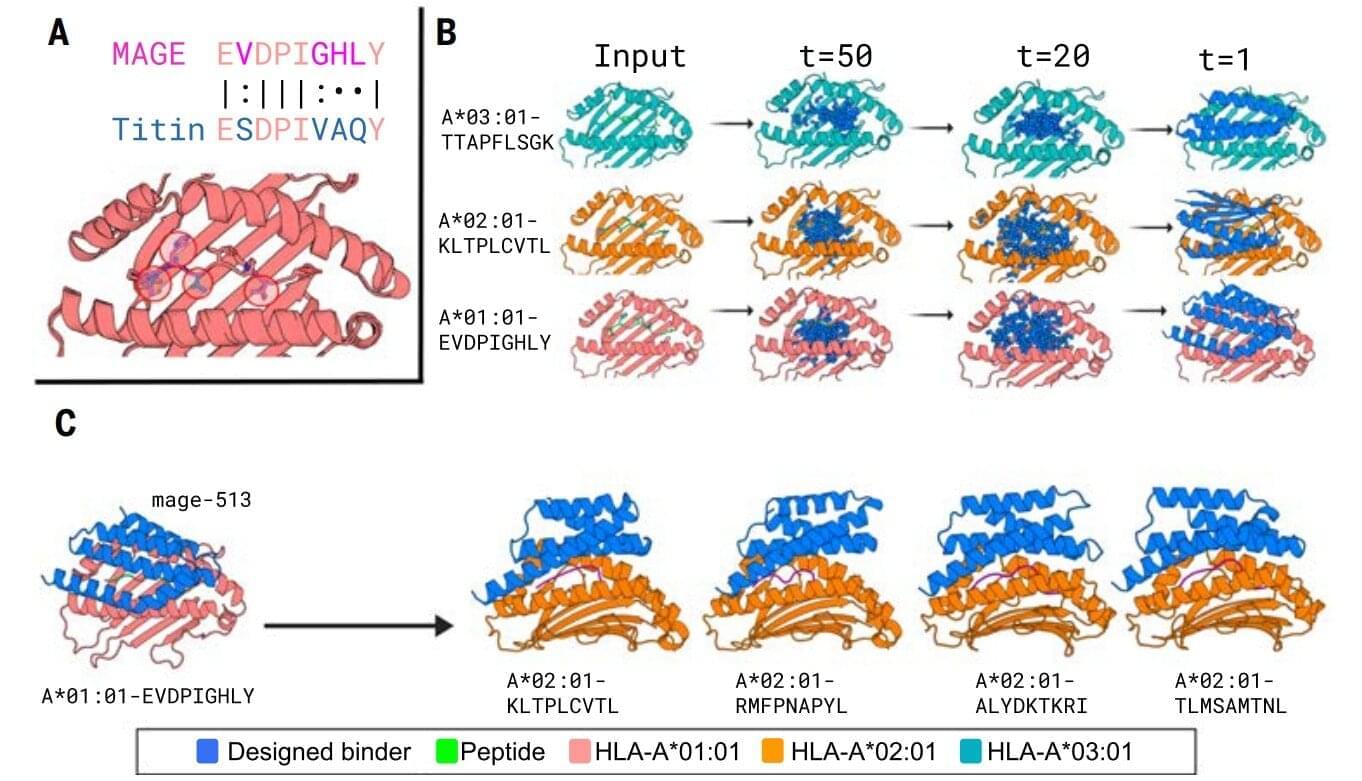
New designer proteins created using an AI tool can selectively target peptide segments that bind to markers on diseased cancer cells, acting like molecular flags that signal immune cells to attack and destroy the threats.
In a recent breakthrough, a team of researchers from the U.S. presented protein binders that specifically recognized the peptide portion of 11 diverse pMHCI complexes—amino-acid fragments found on the surface of almost all cells in the body that play a central role in the immune system’s ability to recognize and respond to abnormal or diseased cells, such as cancer cells.
These proteins, designed with the aid of AI, help human immune cells identify the correct targets and function more effectively, according to findings published in Science.
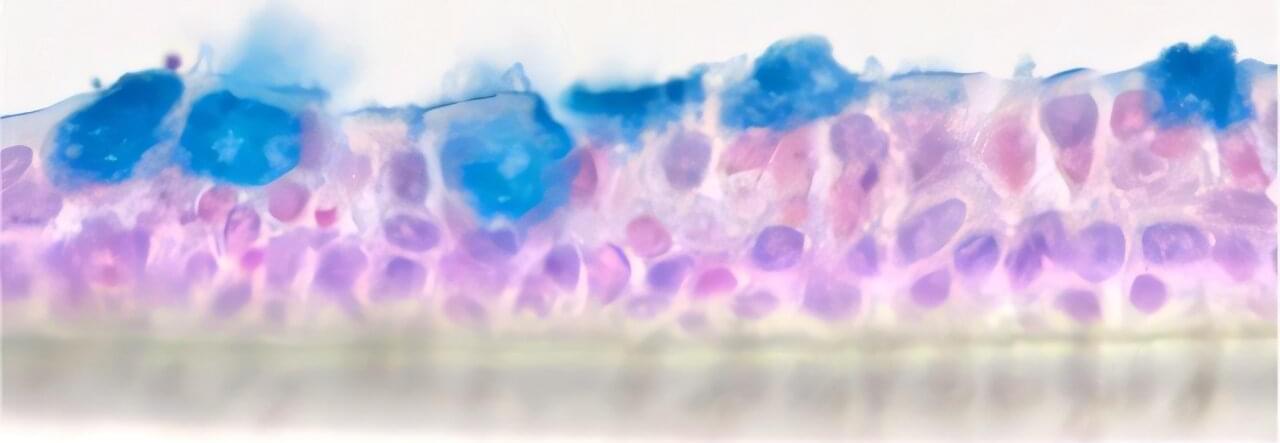
Patients with bronchial asthma suffer from attacks of shortness of breath caused by constricted airways. “Anti-inflammatory medications are usually given to treat this, although it isn’t quite clear how inflammation and constriction correlate,” says Professor Daniela Wenzel, head of the Department of Systems Physiology in the Faculty of Medicine at Ruhr University Bochum.
“These medications often stop working at a certain point.” Furthermore, asthma patients often experience a thickening of the bronchial tissue due to the accumulation of collagen. Goblet cells also form in increasing numbers, producing mucus and making breathing even more difficult. Currently, there is no medication to counteract these changes.
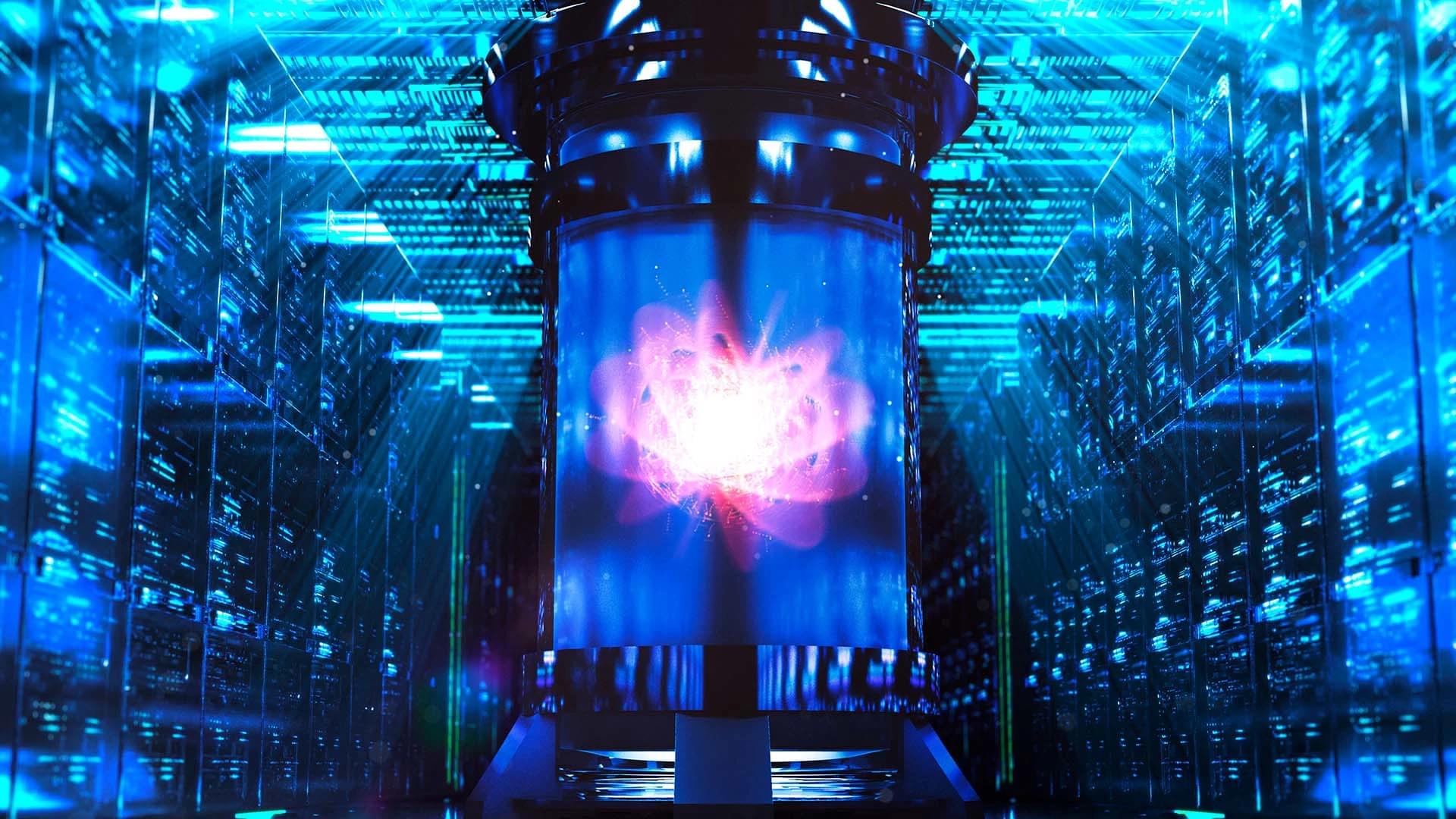
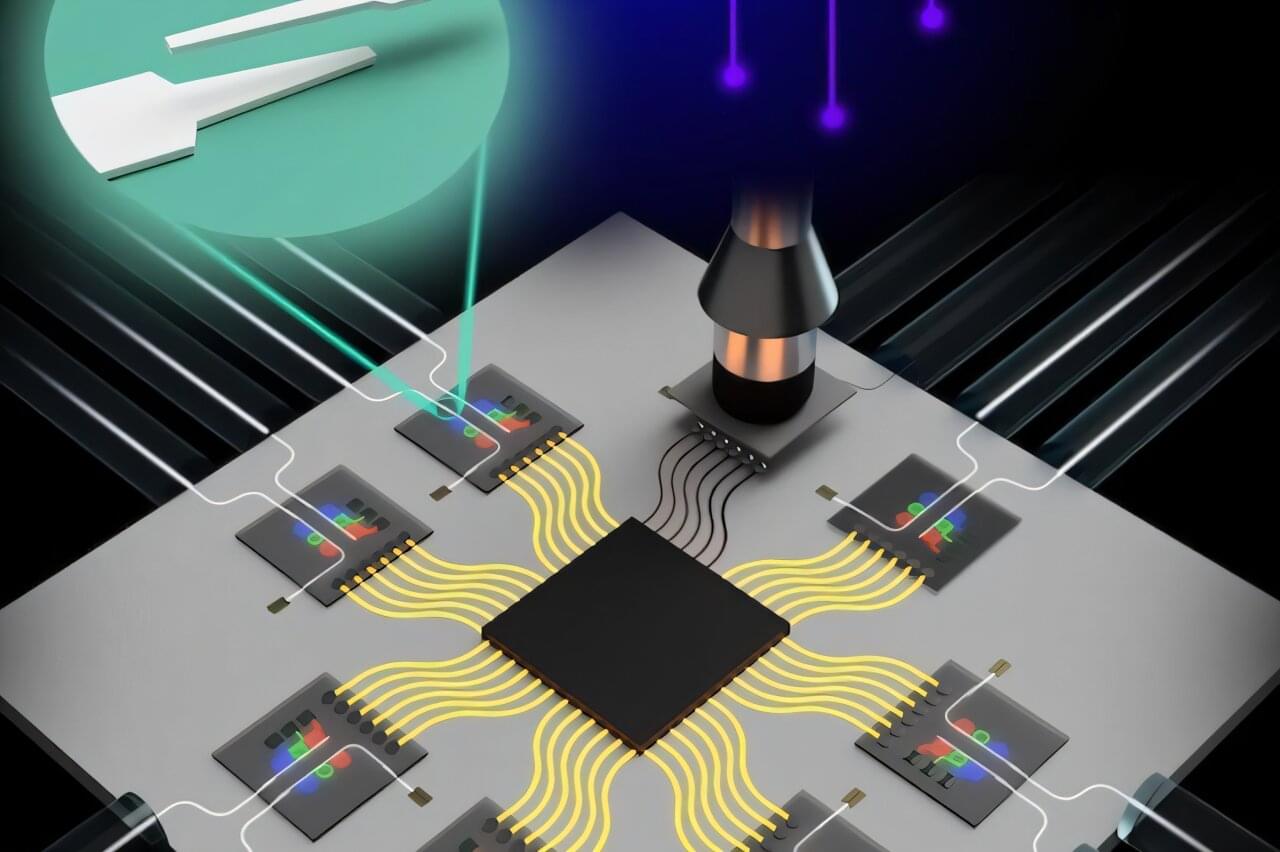
The future of digital computing and communications will involve both electronics—manipulating data with electricity—and photonics, or doing the same with light. Together the two could allow exponentially more data traffic across the globe in a process that is also more energy efficient.
“The bottom line is that integrating photonics with electronics in the same package is the transistor for the 21st century. If we can’t figure out how to do that, then we’re not going to be able to scale forward,” says Lionel Kimerling, the Thomas Lord Professor of Materials Science and Engineering at MIT and director of the MIT Microphotonics Center.
Enter FUTUR-IC, a new research team based at MIT. “Our goal is to build a microchip industry value chain that is resource-efficient,” says Anu Agarwal, head of FUTUR-IC and a principal research scientist at the Materials Research Laboratory (MRL).

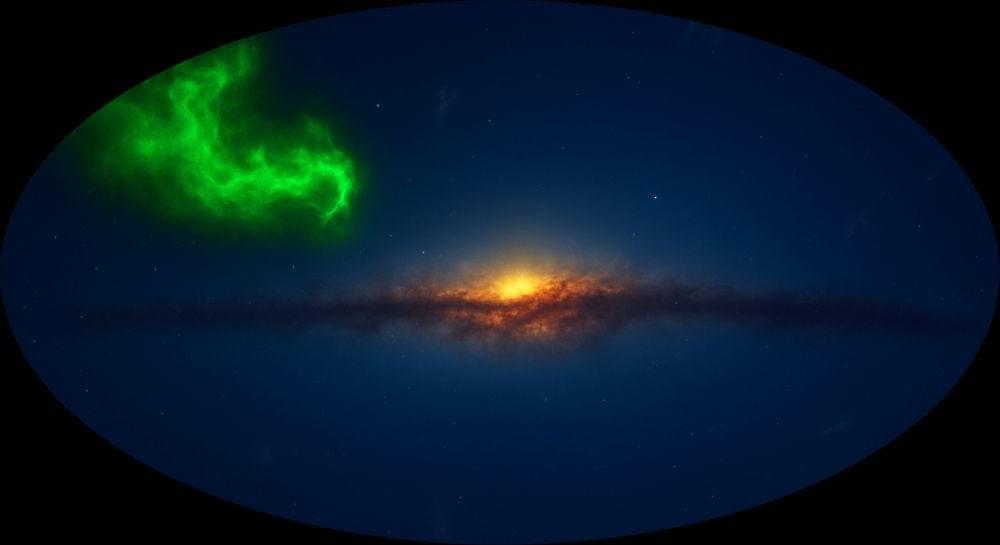
Researchers working with China’s Five-hundred-meter Aperture Spherical radio Telescope (FAST) have revealed some of the complexity in a type of cloud in the ISM. They’ve detected a network of filaments in one Very High Velocity Cloud (VHVC). The observations hint at the complexity that can evolve in these clouds, all without the influence of gravity.